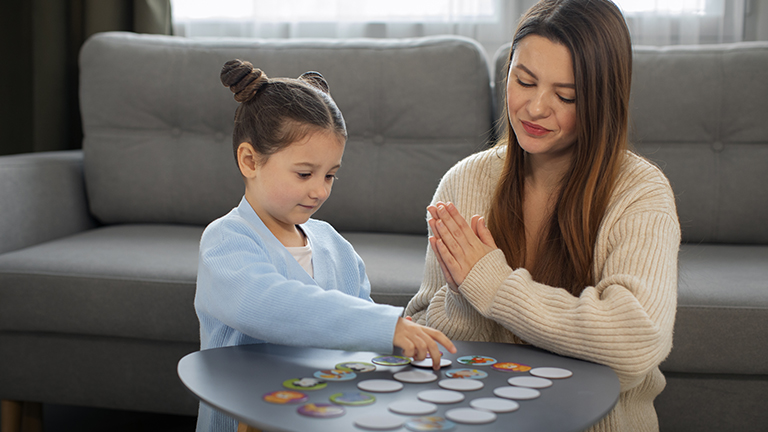Autism spectrum disorder (ASD) affects many young children worldwide. Early diagnosis and intervention can significantly enhance developmental outcomes. This comprehensive guide explores evidence-based autism therapy strategies for toddlers, integrating home-based approaches, professional therapy techniques, and practical tips for parents.
Table of Contents Autism Therapy Techniques for Toddlers
- Introduction to Autism Therapy for Toddlers
- Importance of Early Intervention in Autism
- Top Autism Therapy Strategies for Toddlers
- Home-Based Therapy Activities for Toddlers
- Building Social Skills in Autistic Toddlers
- Behavior Management Strategies for Young Children
- Tracking Progress and Measuring Therapy Outcomes
- Parental Role in Autism Therapy
- Common Challenges and How to Overcome Them
- Conclusion: Choosing the Right Autism Therapy Strategy
Introduction to Autism Therapy for Toddlers
Autism spectrum disorder is a developmental condition that can impact communication, social skills, and behaviour. For toddlers, early intervention through structured therapy strategies is essential. Parents, caregivers, and professionals work together to implement techniques that support skill development and reduce behavioural challenges.
Understanding autism therapy strategies for toddlers involves recognising the importance of a personalised approach. Each child may respond differently, so therapies like ABA, speech therapy, occupational therapy, and sensory integration are often combined for optimal outcomes. Research shows that starting therapy before the age of three can significantly improve language, social, and cognitive skills.
Importance of Early Intervention in Autism
Early intervention is the cornerstone of autism therapy. When toddlers receive therapy during critical developmental periods, they are more likely to develop essential life skills. Benefits of early intervention include:
- Enhanced communication and language development
- Improved social interactions and emotional regulation
- Reduction of challenging behaviours
- Better long-term academic and social outcomes
- Increased independence and daily living skills
Global studies from the US, UK, and Canada emphasise the importance of initiating therapy programs as soon as autism is suspected. Interventions should be individualised, based on the child’s specific strengths and challenges.
Top Autism Therapy Strategies for Toddlers
Applied Behaviour Analysis (ABA) Therapy
ABA therapy is widely regarded as the gold standard for autism intervention. It focuses on teaching skills through reinforcement strategies. Key elements include:
- Positive reinforcement: Rewarding desired behaviours to increase their occurrence
- Discrete trial training: Structured teaching sessions with clear instructions and responses
- Naturalistic teaching: Learning skills in everyday activities
ABA therapy is adaptable to toddlers and can target communication, self-care, and social skills. Parents can participate in ABA programs to ensure continuity at home.
Speech and Language Therapy
Speech and language therapy helps toddlers with autism develop communication skills. Techniques may include:
- Verbal prompts and repetition
- Augmentative and alternative communication (AAC) devices
- Interactive games to encourage speech
- Turn-taking and social communication exercises
Early speech therapy can prevent delays in language development and enhance social interaction capabilities. Speech therapists work closely with families to integrate strategies into daily routines.
Occupational Therapy for Daily Skills
Occupational therapy helps toddlers develop fine motor, gross motor, and self-care skills. Strategies may include:
- Hand-eye coordination activities (stacking blocks, puzzles)
- Daily living skills practice (dressing, feeding)
- Sensory-motor exercises to improve balance and coordination
- Adaptive strategies to increase independence
Occupational therapists design individualised programs based on each toddler’s abilities and needs. Progress is measured through regular assessments.
Sensory Integration Techniques
Many toddlers with autism experience sensory processing challenges. Sensory integration therapy helps children respond appropriately to stimuli. Common techniques include:
- Swinging, spinning, or bouncing to regulate vestibular input
- Brushing or deep pressure to address tactile sensitivities
- Auditory and visual stimulation activities
- Structured sensory play to improve attention and focus
Sensory integration therapy can reduce anxiety, enhance focus, and improve engagement in daily activities.
Home-Based Therapy Activities for Toddlers
Parents play a crucial role in reinforcing therapy at home. Practical activities include:
- Daily routines to encourage independence
- Interactive play for social skills
- Simple communication exercises using AAC tools or picture cards
- Structured sensory activities like water play, sand play, or textured toys
- Music and movement activities to improve coordination
Consistency at home enhances the effectiveness of professional therapies and helps toddlers generalise skills to different environments.

Building Social Skills in Autistic Toddlers
Social skills development is critical for toddlers with autism. Techniques to encourage interaction include:
- Modelling appropriate social behaviour
- Interactive games that require turn-taking
- Peer play sessions under supervision
- Positive reinforcement for social engagement
- Storytelling and role-playing exercises
Developing social skills early can reduce social anxiety and support lifelong friendships and collaboration.
Behaviour Management Strategies for Young Children
Behavioural challenges can hinder learning. Effective strategies include:
- Positive behaviour reinforcement
- Structured routines and visual schedules
- Clear and consistent instructions
- Redirection and calm-down strategies for meltdowns
- Collaboration with therapists to address specific behaviours
Behaviour management ensures a safer and more productive learning environment for toddlers with autism.
Tracking Progress and Measuring Therapy Outcomes
Monitoring development is essential for effective autism therapy. Tools and methods include:
- Regular developmental assessments by professionals
- Therapy logs maintained by parents and caregivers
- Video or photo documentation of skills and behaviours
- Data collection on specific therapy goals and achievements
Tracking progress allows for therapy adjustments and ensures that interventions remain effective and targeted.
[INSERT_ELEMENTOR id=”5792″]
Parental Role in Autism Therapy
Parents are central to the success of autism therapy strategies. Their responsibilities include:
- Implementing home-based activities consistently
- Communicating with therapists about progress and challenges
- Advocating for individualised therapy plans
- Maintaining patience, encouragement, and emotional support
Active parental involvement enhances therapy outcomes and strengthens the parent-child bond.
Common Challenges and How to Overcome Them
Toddlers with autism may present challenges that can affect therapy:
- Resistance to new routines: Introduce changes gradually and use visual schedules.
- Limited attention span: Use short, frequent therapy sessions and engaging activities.
- Sensory sensitivities: Modify therapy environments to reduce over stimulation.
- Communication barriers: Utilize AAC, gestures, and repetition for understanding.
Overcoming these challenges requires patience, consistency, and collaboration between parents and therapists.
Conclusion: Autism Therapy Techniques for Toddlers
Implementing autism therapy strategies for toddlers requires a holistic and individualised approach. Combining ABA therapy, speech therapy, occupational therapy, sensory integration techniques, and home-based activities can significantly enhance communication, social, and daily living skills.
Early intervention and active parental involvement are essential for maximising progress. Parents should collaborate with professionals to create tailored therapy plans, monitor development, and adapt strategies as needed.
For more resources and support, visit:
- Autism Speaks – Resources for Parents
- CDC – Autism Spectrum Disorder Information
- NHS – Autism in Children
By combining structured therapies, home-based support, and professional guidance, toddlers with autism can achieve their full potential, building skills that last a lifetime.

